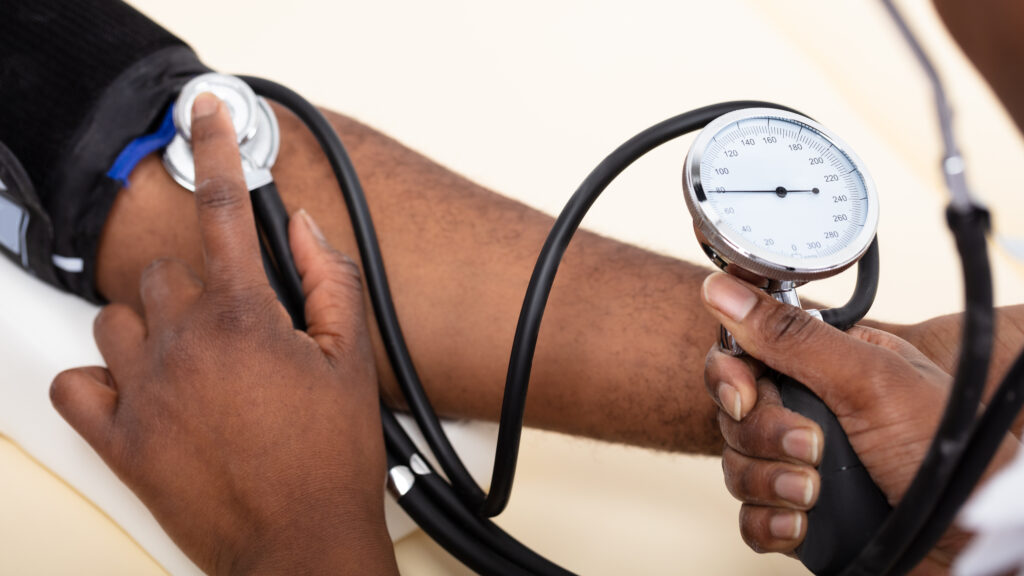
A new and effective class of anti-obesity medicines, along with lifestyle interventions and sometimes bariatric surgery, can help stem the rising tide of obesity in the United States. But outdated rules set by the Centers for Medicare and Medicaid Services make access to these new medicines nearly impossible for the 50 million Americans covered by Medicare and its prescription drug coverage program.
The American Heart Association (AHA) first recognized obesity as a risk factor for cardiovascular disease in 1998. Yet more than 25 years later, skyrocketing rates of obesity remain one of the leading causes of compromised cardiovascular health, and cardiovascular disease is still the leading cause of death in the United States.
Black Americans have suffered disproportionately: no other demographic faces higher incidence of both obesity and cardiovascular diseases, including heart attack, stroke, hypertension (high blood pressure), high cholesterol, and congestive heart failure. As members of the Association of Black Cardiologists and women in medicine, we believe it is a moral and medical imperative to address the obesity epidemic before it gets even worse.
The tools needed to do that are within our grasp. But outdated — and dangerous — views of obesity as a lifestyle choice rather than as a chronic disease continue to persist, even within policymaking circles, suppressing the action needed to drive affordable and equitable treatment options.
The latest figures should be a wake-up call for elected officials and policymakers. Obesity is on a disastrous upward trajectory across the U.S. More than 100 million American adults are living with the disease and, according to a study by the Harvard T.H. Chan School of Public Health, half of all American adults are expected to be living with obesity by 2030.
These figures are even more bleak for the Black community: half of Black Americans are already living with obesity, while a staggering 80% of Black women are obese or overweight.
Cardiovascular health outcomes for Black Americans have continued to decline in tandem with rising obesity rates. Black adults experience a higher burden of cardiometabolic risk factors such as high blood pressure and are more than twice as likely to die of cardiovascular disease as white adults.
It’s even worse for Black women, who are nearly 60% more likely to have high blood pressure, and who experience higher rates of death due to coronary heart disease and stroke.
The fact that these deaths are caused by largely preventable and modifiable conditions only underscores why it’s critical to change course and focus on prevention and treatment.
New anti-obesity medications are proving to be life-changing for people living with obesity. In addition to helping people manage their weight, these medicines also show huge promise in helping mitigate illnesses associated with obesity, including cardiovascular disease and diabetes. Our patients want to be able to use these medicines — they offer vital new tools that cardiologists and other medical providers can deploy.
Yet coverage policies that govern access to these FDA-approved therapies lag woefully behind. In particular, Medicare’s prescription drug coverage program, known as Part D, does not cover treatments and therapies for weight loss, a policy initially implemented at a time when obesity was considered a behavioral issue.
Now that obesity has been recognized as a disease — and not a failure of willpower — and given what’s now known about its complexity, associated risks, and alarming rate of growth, denying millions of Americans access to lifesaving medicines for obesity is unacceptable.
Congress can change that by passing the Treat and Reduce Obesity Act (H.R. 4818), which would mandate the inclusion of anti-obesity medicines in Part D coverage.
Although this change would be important for all older Americans, reversing this exemption is a matter of equity and justice for Black Americans. The longer Medicare fails to provide coverage of these medicines, the longer underserved people will be left to fight obesity on their own.
Annette Ansong, M.D., is a pediatric cardiologist in Reston, Va., and co-chair of the Association of Black Cardiologists (ABC) Committee on Cardiovascular Disease in Women & Children. Rachel Bond, M.D., is a cardiologist in Chandler, Ariz., co-chair of the ABC Committee on Cardiovascular Disease in Women & Children, and a member of the ABC Board of Directors. Tiffany Powell-Wiley, M.D., is a cardiologist and co-chair of the ABC Research Committee.

